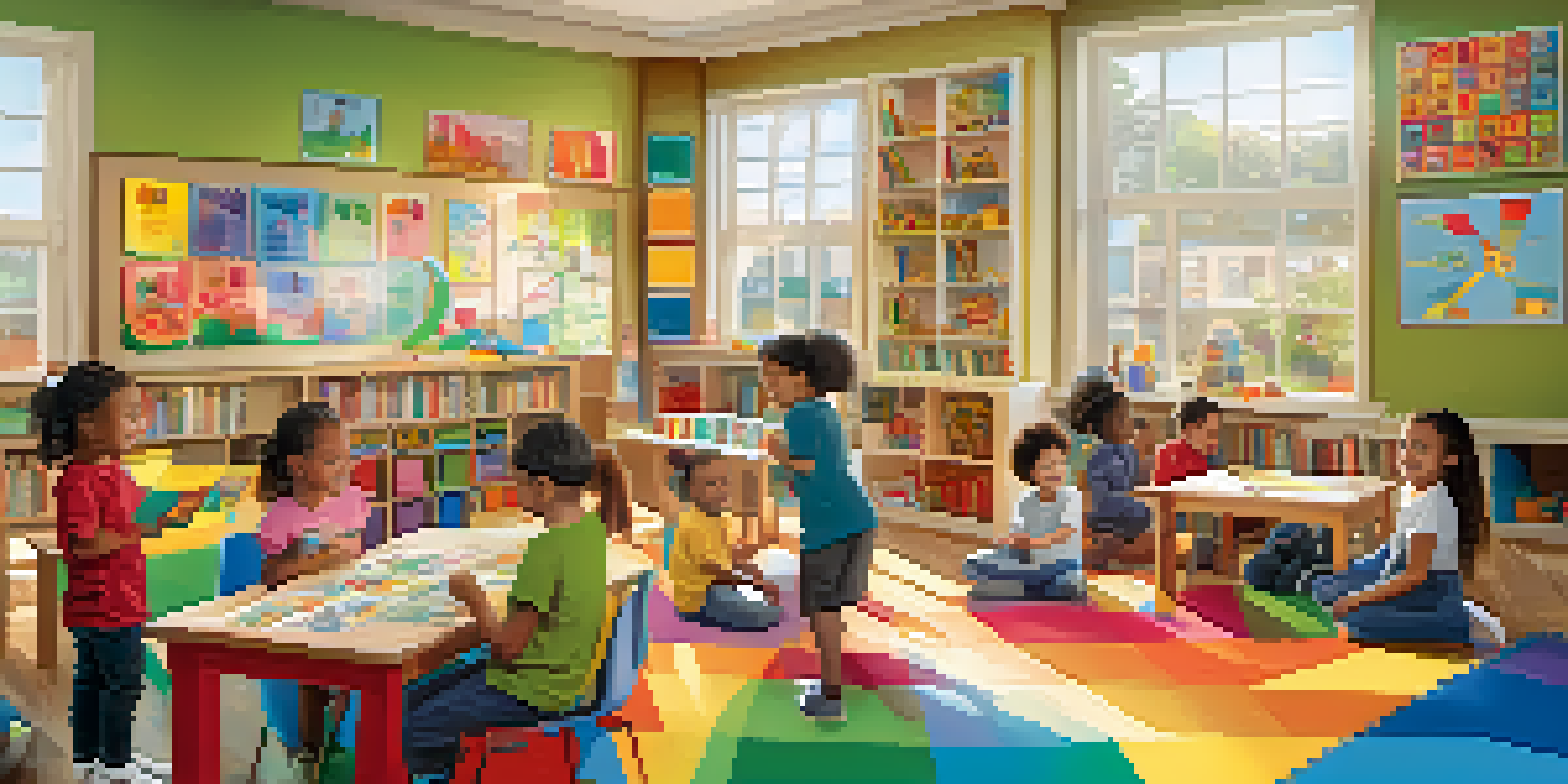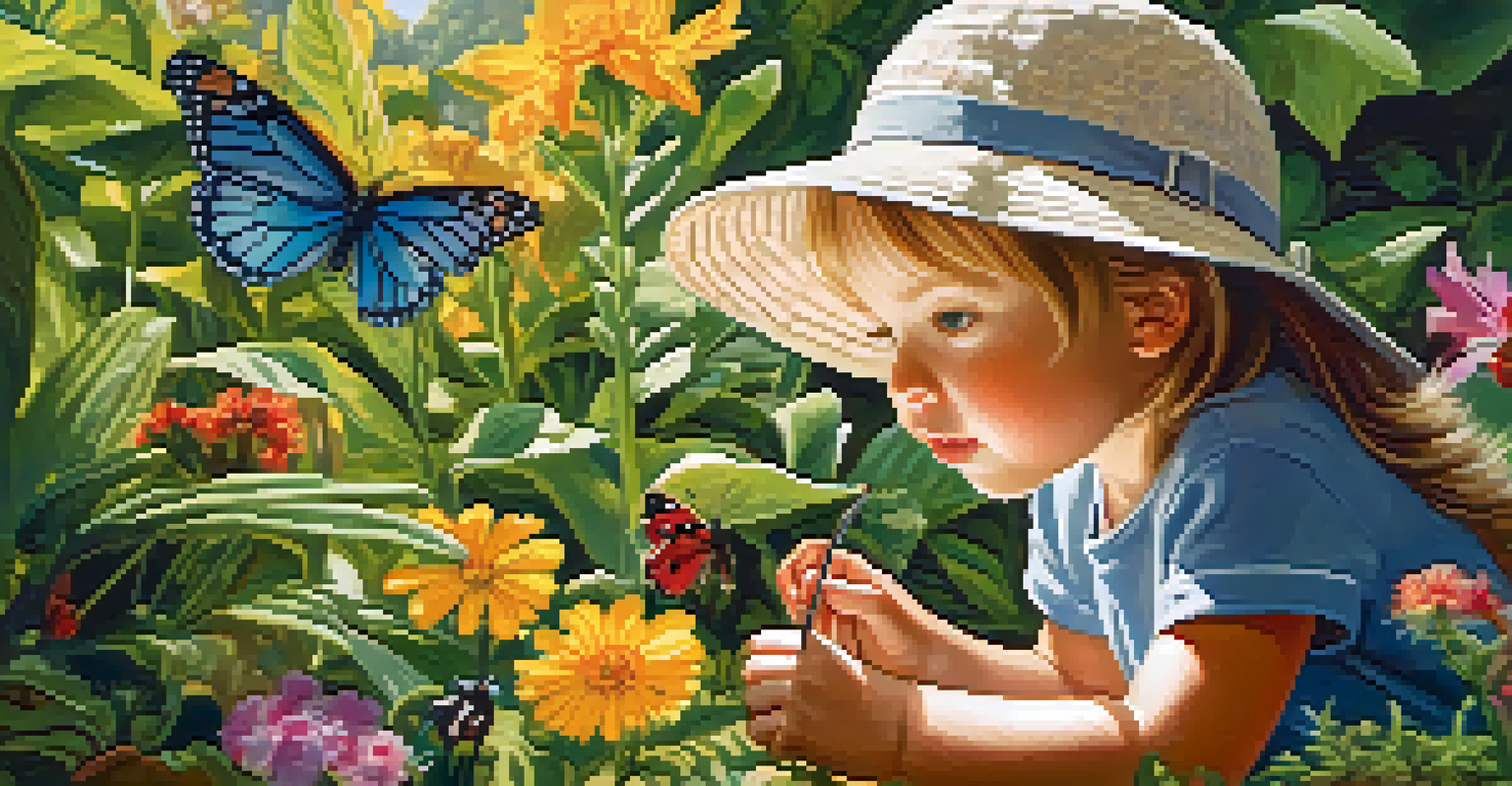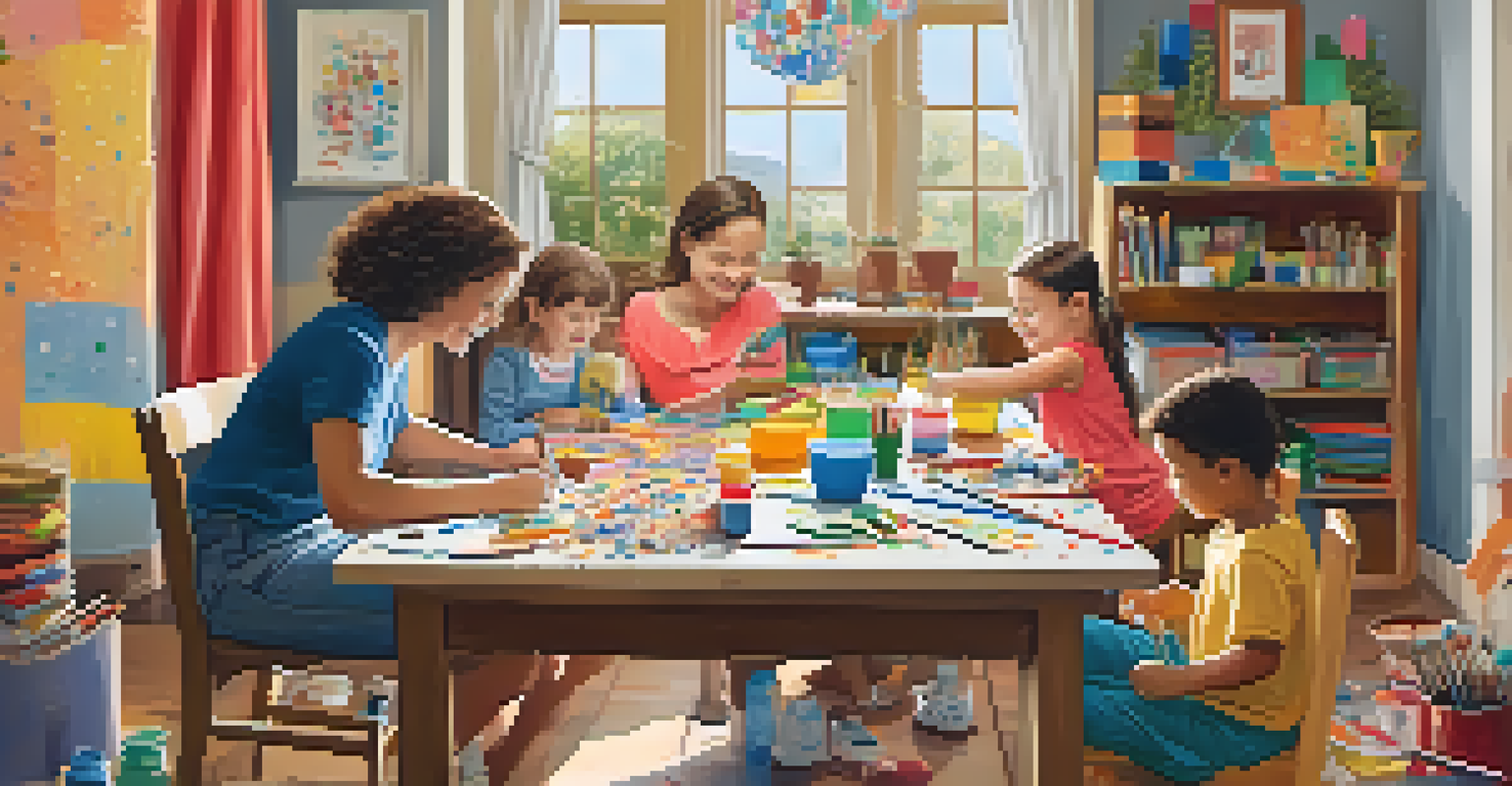Play, Curiosity, and Exploration: Keys to Lifelong Learning

The Role of Play in Learning and Development
Play is often dismissed as mere fun, but it’s a vital part of learning. Children engage in play not just to entertain themselves, but to experiment with the world around them. Through play, they develop critical skills like problem-solving, social interaction, and creativity, laying the groundwork for future learning.
Play is the highest form of research.
Consider how a child playing with building blocks learns about balance and gravity. Each time they build higher, they test their understanding of how things work. This hands-on experience instills a sense of confidence and encourages them to tackle new challenges.
As adults, we sometimes forget the importance of play in our own learning journeys. Embracing playful activities can reignite our passion for exploration and help us approach tasks with a fresh perspective, reminding us that learning can be enjoyable at any age.
Curiosity: The Spark That Ignites Learning
Curiosity is the innate desire to learn and understand, driving us to ask 'why' and 'how.' This trait is essential in fostering a love for learning, as it pushes us to seek out new information and experiences. When we nurture our curiosity, we open doors to deeper understanding and personal growth.

For instance, think about a time when you learned something surprising. That moment of discovery likely came from your curiosity about a topic or situation. This engagement can lead to a more profound interest in related subjects, creating a continuous cycle of learning.
Play Fuels Learning and Growth
Engaging in play helps children and adults develop essential skills like problem-solving, creativity, and social interaction.
Moreover, cultivating curiosity in ourselves and others can have lasting impacts. By asking questions and exploring new ideas, we promote an environment where learning becomes a shared adventure, enriching our lives and the lives of those around us.
Exploration: The Path to Knowledge
Exploration is the active pursuit of knowledge and experiences, often fueled by curiosity. It’s about stepping out of our comfort zones and seeking the unknown. This journey not only enhances our understanding but also encourages adaptability and resilience in the face of new challenges.
Curiosity is the engine of achievement.
Think of a traveler exploring a new city. Each street, local dish, and cultural experience adds to their understanding of the world. Similarly, in our daily lives, exploring new ideas—be it through reading, travel, or conversations—broadens our perspectives.
In essence, exploration transforms passive learning into an engaging adventure. By embracing the unknown and allowing ourselves to wander intellectually, we enrich our lives and foster a lifelong love for learning.
The Interconnection of Play, Curiosity, and Exploration
Play, curiosity, and exploration are deeply intertwined, each feeding into the other. When we play, we often become curious about how things work, prompting us to explore further. This cycle creates a robust environment for learning, where each aspect enhances the others.
For instance, a child who plays with a toy car might become curious about how it moves and subsequently explore physics concepts. This interconnectedness demonstrates that learning is not a linear process; it’s a dynamic interplay of various elements.
Curiosity Drives Lifelong Learning
Nurturing curiosity encourages continuous exploration and a deeper understanding of the world around us.
Recognizing this relationship can help us create opportunities for learning, both for ourselves and for others. By fostering environments where play, curiosity, and exploration thrive, we cultivate a culture of lifelong learning.
Creating a Learning Environment That Fosters Play
To cultivate lifelong learning, we must create environments that encourage play. This means incorporating fun, engaging activities into our routines and spaces. Whether in schools, workplaces, or at home, integrating playful elements can lead to increased motivation and creativity.
Consider a workplace that allows for creativity breaks—like brainstorming sessions with games or challenges. Such environments can stimulate innovative thinking and boost morale, making learning an enjoyable part of the day.
Ultimately, the goal is to make learning feel less like a chore and more like an adventure. By prioritizing play in our learning environments, we can inspire both ourselves and others to engage more deeply with the world around us.
Nurturing Curiosity in Our Daily Lives
Nurturing curiosity is essential for fostering a love of learning. We can do this by asking open-ended questions, exploring new hobbies, and encouraging discussions that delve into various topics. By creating a culture of inquiry, we enhance our ability to learn continuously.
For example, setting aside time each week to learn something new—like a language, instrument, or craft—can help keep curiosity alive. Sharing these experiences with friends or family can further amplify the joy of discovery.
Exploration Enhances Knowledge
Actively seeking new experiences broadens our perspectives and transforms learning into an engaging adventure.
Additionally, embracing a mindset that values questions over answers can lead to a more enriching learning experience. By celebrating curiosity, we empower ourselves and others to explore the vast world of knowledge.
The Lifelong Impact of Play, Curiosity, and Exploration
The effects of incorporating play, curiosity, and exploration into our lives extend far beyond childhood. These elements shape our ability to adapt, innovate, and connect with others throughout our lives. As we embrace these principles, we not only enhance our personal growth but also contribute to a more curious and engaged society.
Consider how individuals who maintain a playful spirit tend to be more open-minded and resilient. They approach challenges with creativity, often leading to unique solutions and opportunities for growth.

In conclusion, prioritizing play, curiosity, and exploration is not just beneficial; it’s essential for lifelong learning. By fostering these qualities, we can create a fulfilling journey of discovery that lasts a lifetime.